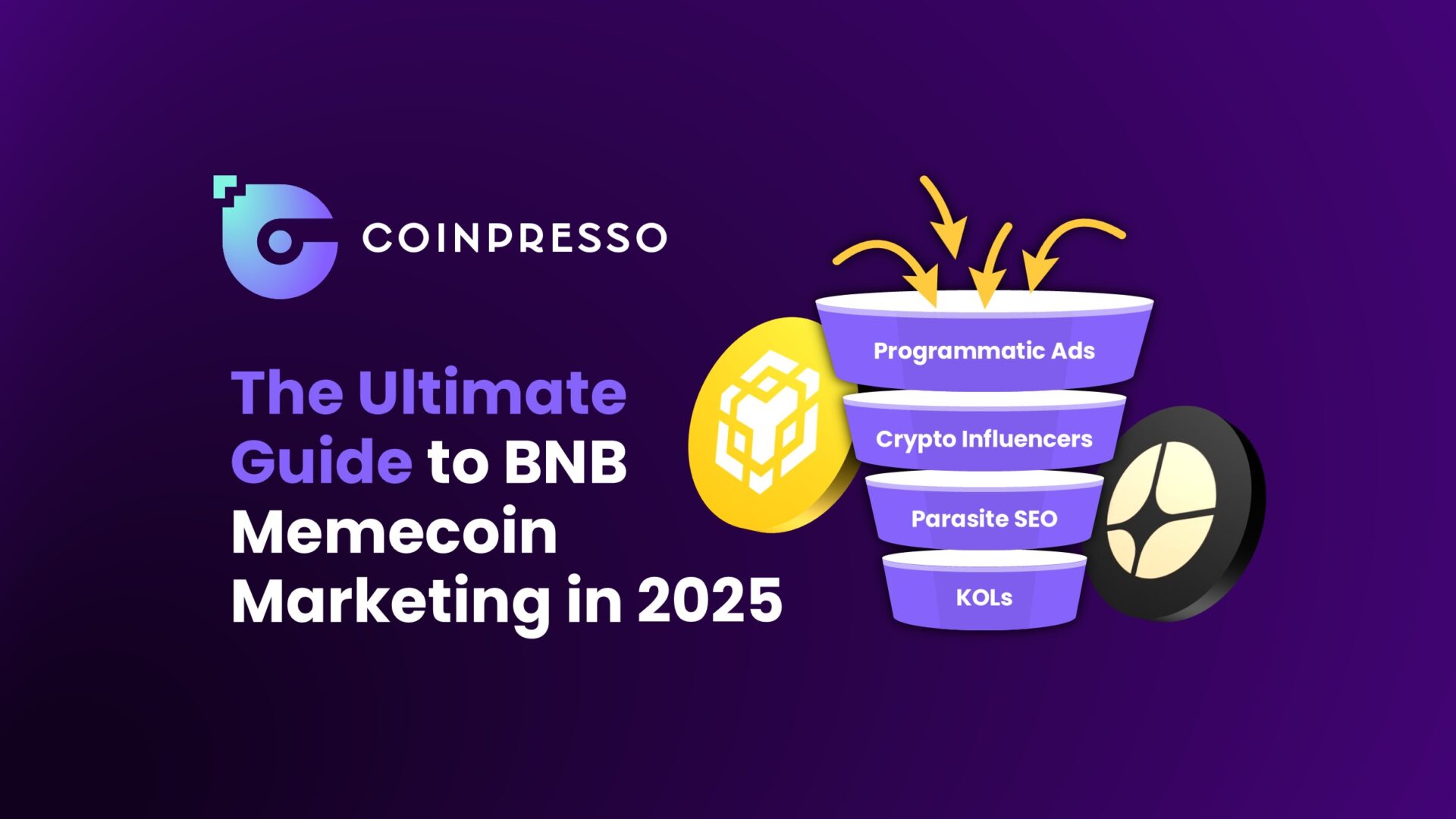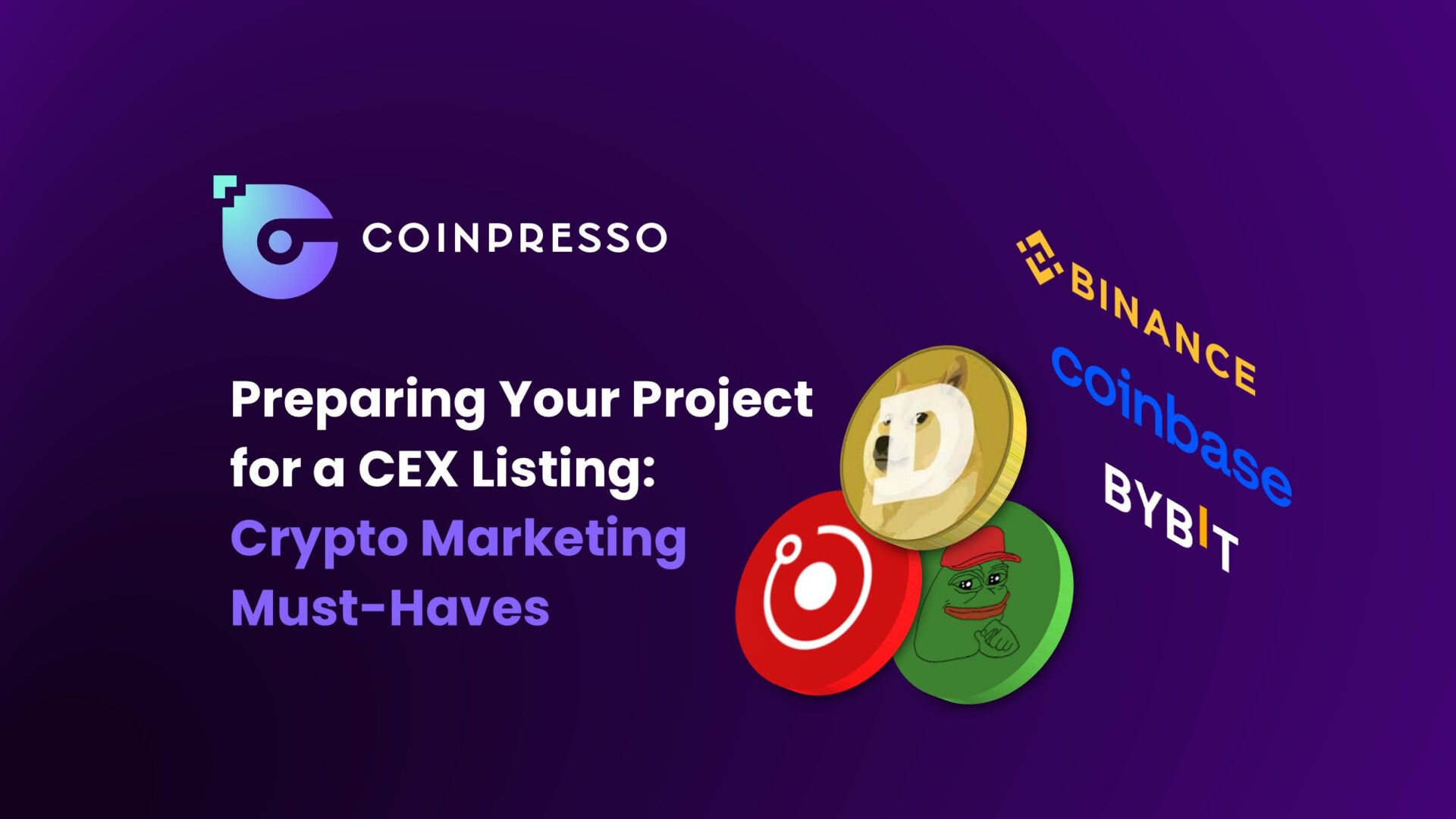
In the cryptocurrency industry, where innovation and volatility go hand-in-hand, building a strong brand presence and gaining the trust of potential investors is essential. While the technology behind blockchain and digital assets is groundbreaking, effectively communicating its value is equally important. This is where crypto marketing proves to be an indispensable tool.
Content marketing involves creating and sharing valuable, relevant, and engaging content to attract and retain a clearly defined audience. This could include insightful blog posts, AMAs, outreach articles, and social media campaigns.
In this guide, we will explore the various ways content marketing can empower crypto businesses to not only survive but flourish in this competitive market. We will examine the importance of content writing, crypto SEO, and social media marketing.
Understanding Content Marketing in the Crypto Industry
Content marketing is a strategic approach focused on creating and distributing valuable, relevant, and consistent content to attract and engage a target audience. Unlike traditional advertising, which can be intrusive and disruptive, content marketing aims to provide genuine value to potential users, building trust and loyalty.
In the crypto industry, where misinformation and skepticism often abound, content marketing plays a pivotal role in educating the public and building credibility. Cryptocurrency companies can demystify complex concepts, showcase real-world use cases, and drive adoption by providing well-researched articles, insightful analyses, and engaging stories.
Current Trends and Statistics
The crypto content marketing industry is constantly shifting, with new trends emerging alongside the industry's rapid growth. Some notable trends include:
- Educational Content: A focus on explaining blockchain technology, cryptocurrency fundamentals, and investment strategies in a clear and accessible manner.
- Thought Leadership: Establishing expertise and authority through in-depth analysis, market predictions, and commentary on industry developments.
- Community Building: Engaging with the crypto community through social media, forums, and AMAs (Ask Me Anything) to build relationships and encourage discussion.
- Data-Driven Content: Leveraging data and analytics to create personalized content experiences and track the effectiveness of marketing campaigns.
Effective Content Marketing Strategies for Crypto Companies
A well-defined Web3 content marketing strategy is the cornerstone of a successful crypto startup. It provides a roadmap for creating, publishing, and distributing content that aligns with overall business goals.
The first step in developing a content strategy is to identify the target audience and understand their needs and pain points. Companies can tailor their content by understanding the audience to resonate with them and provide value.
Types of Content
Crypto companies can leverage various content formats to engage their audience and achieve their marketing objectives. Here are some common types of content used in the crypto space:
- Blogs and Articles: Informative and engaging crypto blog articles can attract readers to a website and establish a company as a thought leader. Topics can range from beginner guides to in-depth analysis of market trends.
- Videos and Webinars: Visual content, such as explainer videos and webinars, can simplify complex concepts and make them more accessible to a wider audience.
- Infographics and Whitepapers: Visually appealing and informative resources like infographics and whitepapers can provide valuable information in an easily digestible format.
- Social Media Content: Engaging social media posts can help connect with the audience, build a community, and drive traffic to a website.

SEO and Keyword Optimization
Search engine optimization (SEO) is crucial for ensuring content reaches its intended audience. By optimizing content for relevant keywords, companies can increase their visibility in search engine results pages (SERPs) and attract organic traffic.
Keyword Research
Keyword research is the foundation of any successful SEO strategy. It involves identifying the terms and phrases that potential customers are using to search for information related to your products or services. Several tools can assist in this process:
- Google Keyword Planner: This free tool provides insights into search volume, competition, and suggested bid prices for keywords.
- SEMrush and Ahrefs: These paid tools offer more in-depth analysis, including competitor research, backlink analysis, and content gap analysis.
Technical SEO
Technical SEO refers to the optimization of your website's infrastructure to improve its crawlability and indexability by search engines. This includes:
- Site Speed: A fast-loading website provides a better user experience and is favored by search engines. You can use tools like Google PageSpeed Insights to analyze your website's speed and identify areas for improvement.
- Mobile-Friendliness: With the majority of internet users accessing websites on mobile devices, it's crucial to have a responsive design that adapts to different screen sizes.
- Site Structure: A clear and logical site structure makes it easier for search engines to crawl and index your content. This includes using descriptive URLs, internal linking, and a clear hierarchy of pages.
Crypto Link Building
Crypto-link building is the process of acquiring backlinks from other websites to your own. Backlinks act as votes of confidence, signaling to search engines that your content is valuable and relevant. In the crypto niche, some effective link-building strategies include:
- Guest Posting: Contributing high-quality articles to reputable crypto publications can earn you valuable backlinks.
- Resource Page Link Building: Many websites have resource pages that list helpful links for their readers. Reaching out to these websites and requesting a link to your relevant content can be a viable strategy.
- Networking and Partnerships: Building relationships with other crypto companies and influencers can lead to mutually beneficial link-building opportunities.
By focusing on keyword research, technical SEO, and crypto link building, companies can improve their website's visibility in search results, attract relevant traffic, and ultimately achieve their content marketing goals.
Leveraging Social Media and Influencers
Web3 social media marketing helps projects connect with their target audience and build brand awareness. Platforms like Twitter, Reddit, and Telegram are bustling hubs of crypto enthusiasts eager for information and engagement. Companies can build a loyal following and establish themselves as thought leaders by actively participating in these communities, sharing insightful content, and promoting discussions.
Crypto influencer marketing can further amplify a brand's message and reach. Influencers, with their established credibility and engaged audiences, can serve as powerful advocates for crypto projects. When selecting influencers to partner with, it is crucial to choose those whose values align with the company's brand and mission. Most leading crypto projects hire a crypto community management agency to ensure their social media communities remain active and produce long-term results.
Successful influencer marketing campaigns in the crypto space have demonstrated the potential for significant ROI. For instance, a well-known crypto influencer promoting a new DeFi project can drive a surge in interest and adoption. Similarly, an informative AMA session with a respected figure in the industry can generate buzz and establish trust with potential investors.
Measuring the Success of Content Marketing Efforts
The success of any content marketing strategy hinges on the ability to measure its effectiveness. Tracking key performance indicators (KPIs) allows crypto companies to gauge the impact of their content and make data-driven decisions to optimize their efforts.
Several KPIs can be used to assess content marketing performance in the crypto space. Website traffic, measured through tools like Google Analytics, indicates the reach of content and its ability to attract visitors.
Engagement metrics, such as social media shares, comments, and likes, reveal how well the content resonates with the audience. Conversion rates, whether it's newsletter sign-ups, demo requests, or purchases, show how effectively the content drives desired actions.
By regularly monitoring these metrics and analyzing the data, companies can gain valuable insights into what's working and what's not. This information can then be used to refine content strategies, identify areas for improvement, and ultimately achieve greater success in marketing efforts.
For example, if a particular type of content consistently generates high engagement, it may be worth investing more resources into creating similar content. Conversely, if a campaign isn't performing as expected, analyzing the data can help identify the root cause and suggest adjustments to improve results.
Final Thoughts on How Content Marketing Helps Crypto Businesses
Web3 digital marketing is a powerful tool that can help crypto businesses navigate the complexities of the market, build trust, and achieve sustainable growth. By developing a well-rounded content strategy, companies can educate their audience, establish thought leadership, and drive engagement across multiple channels.The opportunities for content marketing in the crypto space are vast, from informative blog posts and engaging social media content to strategic SEO and influencer partnerships. Focusing on providing genuine value, fostering community, and measuring the impact of their efforts, crypto businesses can unlock the full potential of content marketing and position themselves for success in this dynamic industry.



































